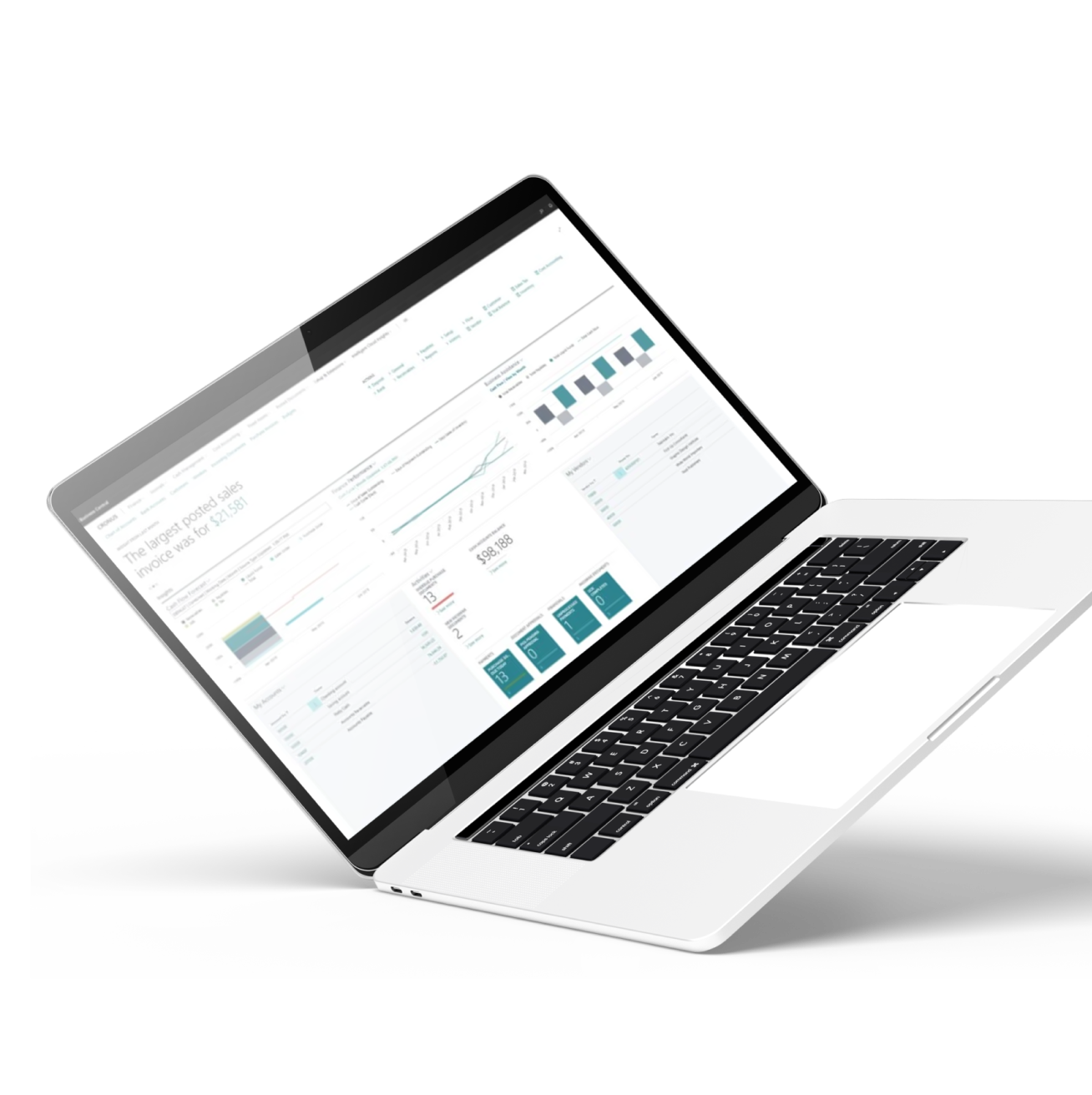Connect your entire business
Dynamics 365 provides a unified platform for managing your business and helps simplify daily financial and operational tasks, improve collaboration, and enhance efficiency across your organization. Shape the future of your business by connecting your teams, processes, and data across your entire org to create exceptional customer experiences and operational agility.

What is it?
Comprehensive platform
Microsoft Dynamics 365 is a comprehensive platform that integrates Enterprise Resource Planning (ERP) and Customer Relationship Management (CRM) tools. It combines functions like sales, customer service, field operations, finance, marketing, and project service automation into one unified solution.
Flexible to your needs
By connecting with other Microsoft products, such as Office 365, Power BI, and Azure, Dynamics 365 allows companies to streamline workflows, enhance customer interactions, and leverage data for better decision-making. Its flexibility will enable businesses to customize the platform according to their unique needs and industry demands.
Optimizes your business
Dynamics 365's primary goal is to help businesses optimize their processes, gain valuable operational insights, and strengthen customer relationships. It offers tools for managing sales, automating marketing efforts, tracking customer engagements, handling financials, and improving operational efficiency.
Personal pricing
The platform operates on a subscription model, with various modules and pricing options tailored to different business sizes and needs.
Microsoft Dynamics 365 Business Applications
Get in touch
Send us an email
Let us know what your challenges are all about. We are here to help.

